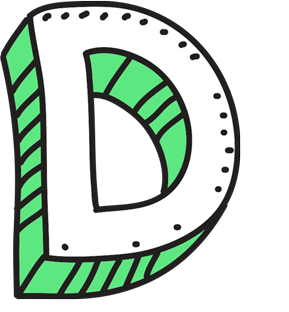You can search for anything linked to emotional well‑being in our handy A-Z guide.


-
Depression
All of us feel sad about things from time to time - it’s a part of life. When that sadness stays for a long period of time, feels overwhelming, or starts to impact on day-to-day life, relationships, or how we see or think about ourselves it could be depression.
People with depression often experience feelings of extreme sadness, worthlessness or guilt, or find it hard to concentrate, sleep or eat. They might lose interest in doing things they usually enjoy or seeing or speaking to their family and friends.
Anyone can develop depression. Sometimes can start following a life event such as bereavement, illness, a relationship problem, or having a baby (see post-natal depression) and sometimes it can develop for no known reason.
There are many different ways to cope with and manage depression, and different things work for different people, the most important thing you can do if you are feeling depressed is talk to someone.
Sometimes people “nickname” depression the black dog. This video can help explain depression using the “black dog”
You can also find out more about depression at Young Minds.
If you are feeling depressed you may benefit from counselling.
-
Diet
Your body and mind are part of the same machine that is you. They work together and when one of them is not functioning brilliantly it can affect the other. Each of the parts of you lets the other know when it needs something. E.g. when our body is hungry it tells the mind and the mind can barely focus on anything but food until it’s sorted. It’s like a car: you have to put in some of the right things to get the machine to work at its best performance and avoid breakdown.
Eating a healthy balanced diet fuels your body to run and it helps your mind to stay fit and well.
Eating a good balance of food really helps keep a person emotionally strong and happy and better able to deal with the challenges of the day. Eating well can really go a long way to help people to overcome problems like depression, anxiety, self-esteem issues etc. and can help a person have the energy and focus to deal with, and even enjoy all life throws their way.
Eating Healthy
Sometimes it can be confusing to work out what eating healthy actually means, and sometimes it feels hard to control the food we eat because of money issues, or not being the person who buys and cooks the food. You don't need to plan a military eating operation, but if you learn the things that can make a real difference, either positively or negatively you can take some control. You can find more about a healthy balanced diet at NHS Choices.
If you want some support around eating healthy ask for help! You can also find out more about looking after your mind and body at Young Minds.
You may also want to look at our section on Eating Disorders.
-
Discrimination
Discrimination is when someone is treated unfairly because of who they are, what they believe or people or places they are linked to.
We all have the right to be treated equally regardless of our ability or disability, gender identity, race, religion, beliefs, sexuality, language, age, health, ethnicity, class or other status. If someone wouldn’t give you a job because you were a teenager and they thought all teenagers were lazy, that would be discrimination. It is important to challenge discrimination.
Discrimination is against the law
The Equality Act 2010 protects people from being discriminated against by employers, businesses that provide you with goods like shops or banks, healthcare providers like hospitals, housing providers, transport services like buses or trains and public bodies such as councils.
Sometimes a mental illness can be a disability. The Disability Discrimination supports and protects disabled people. It’s a piece of law that means it’s illegal for employers, colleges, and other services in the UK to discriminate against people who are disabled - in fact, it means they have to act to make sure opportunities are available for people with disabilities. This is called “making reasonable adjustments”
If someone feels they are being treated unfairly or being discriminated against because of their age, disability, gender, pregnancy/maternity, race, religion or belief, sex, sexual orientation or marital status, what is happening could be against the law.
As the law around discrimination can be complicated, if you want to challenge it, you may find it helpful to seek advice from somewhere like the Citizen’s Advice Bureau as they may be able to provide you with the help you need.
-
Divorce and Separation
Parent or carers Separating or Divorcing
Separation can be seen as both positive or negative. For some people, it’s a huge change and may mean one of their parents or carers leaving the family home which can cause difficulties emotionally and financially. For other people, it may mean an end to their parents or carers arguing which means they can relax more at home. If a parent or carer moves out, it can leave people feeling torn about who to spend their time with or even who to live with. They may feel guilt towards the other parent or as if they are letting them down. They may have to get used to a whole new set of house rules at their parent’s new house or get used to a new partner and their family. It could be that parents keep arguing even when they are separated and you may feel like you are caught in the middle, sometimes maybe hearing them say bad things about each other.
Friends and Family
Friends and family can be really really important to us and sometimes because of change and life events e.g. they move away, we move away or we lose contact we can be separated from people we really care about. It can feel like bereavement and sometimes there feels like there is a great big hole in life where a person used to be.
Whatever the changes it’s totally ‘normal’ to feel worried or upset. It may be that you struggle to concentrate, start to feel depressed or sad. It might help to talk it through with someone.
-
Drugs and Mental Health / Dual Diagnosis
Some people have mental health problems and problems with drugs or alcohol. It can be hard to know if the mental health problem is causing the drug use, or if the drug use is causing a mental health problem or if either thing is making the other problem worse.
It could be that the problems have nothing to do with each other. Some people use drugs or alcohol to deal with the feelings and symptoms that come from their mental health problem – these drugs may help with one part of a problem, but no drug is without health risks and unwanted side effects.
Someone with both a drug or alcohol problem and a mental health problem has a “dual diagnosis” and there are people who are trained to help with this.
It is OK to talk to professionals like doctors, counsellors or youth workers about this – you will not get into trouble.
See also self-medication.






If you still have unanswered questions, you can go to a service in your area for information & advice:




























